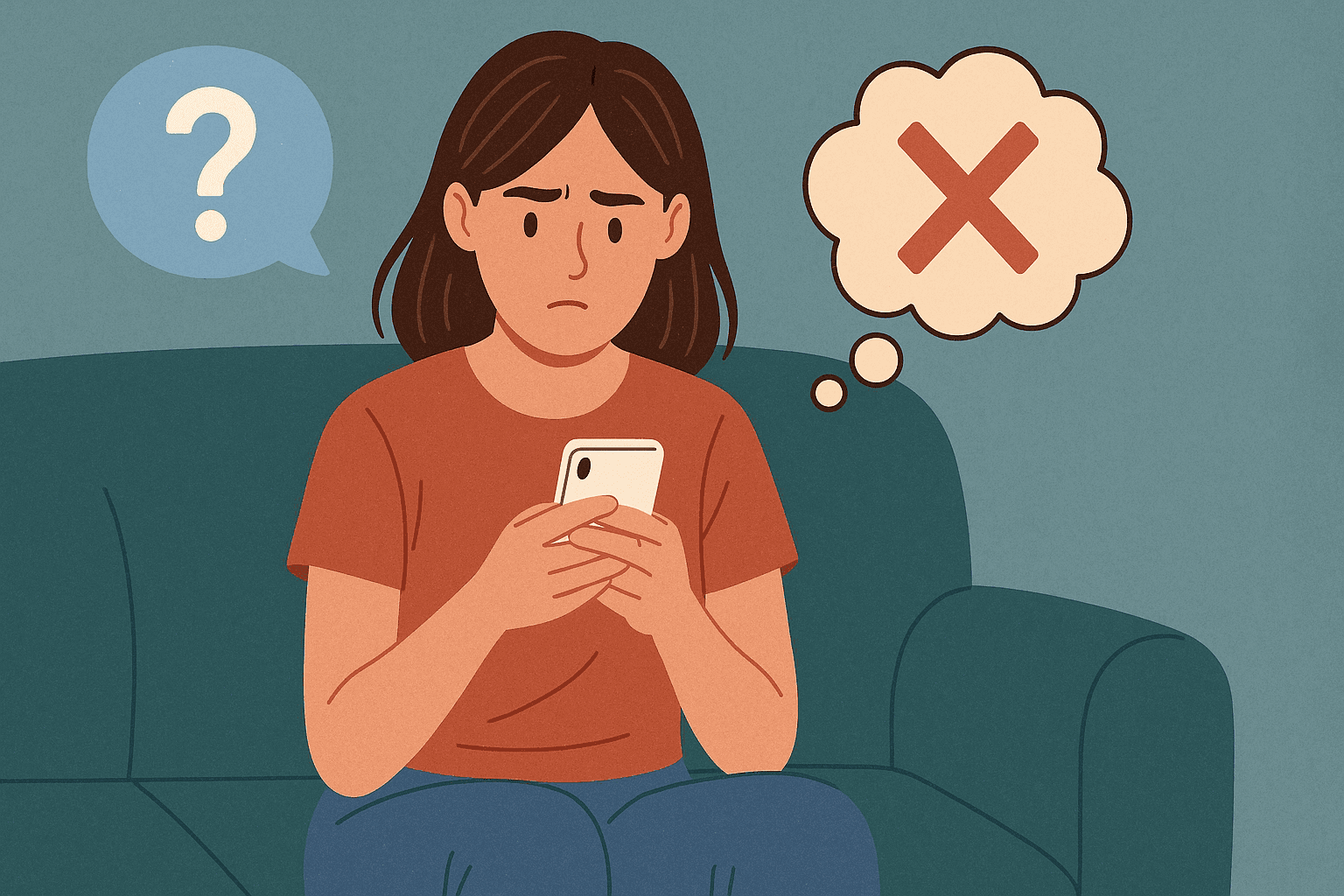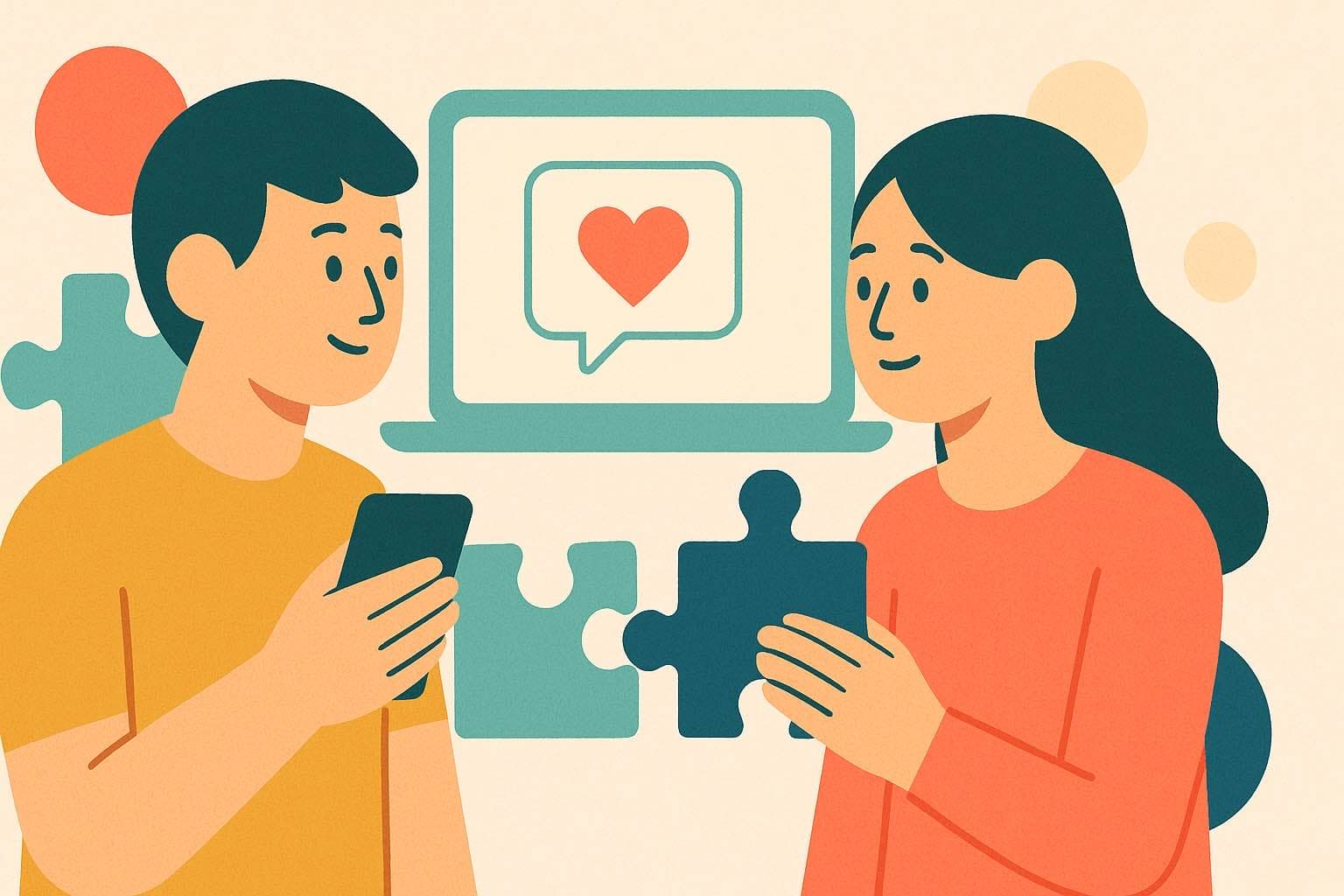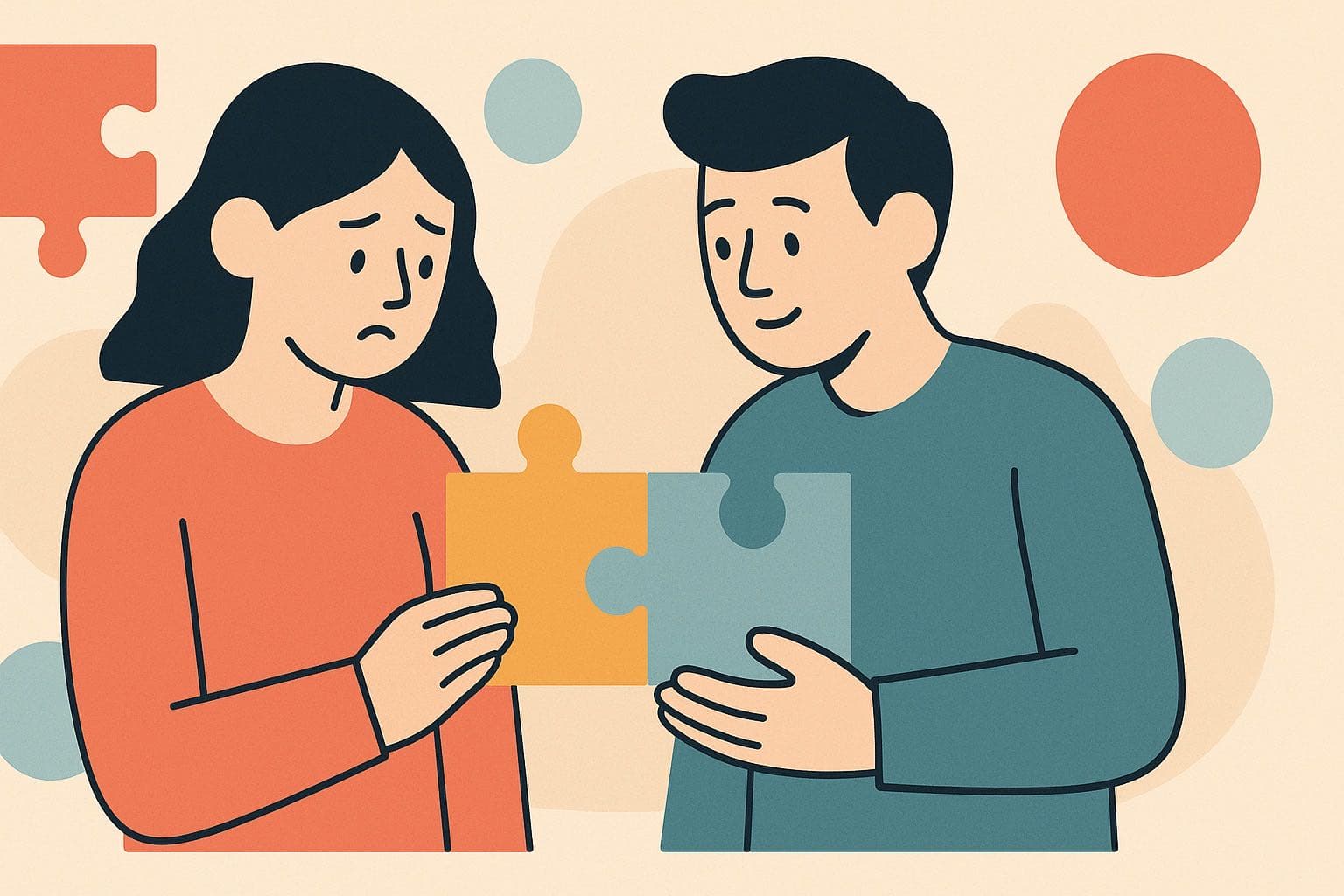Should I Text My Ex-Friend? 7 Signs You Should (And 5 You Shouldn't)
Should I text my ex-friend? Discover expert-backed signs when texting is worth it, warning red flags to avoid, and healthier alternatives for closure.

That nagging feeling hits you again. You're scrolling through your phone, and suddenly you're staring at your ex-friend's contact. Your finger hovers over the keyboard. Should I text my ex-friend?
Table of Contents
- Key Takeaways
- Why Friendship Breakups Cut So Deep
- Before You Hit Send: Essential Questions
- Types of Friendship Endings That Matter
- When Is the Right Time to Reach Out?
- What to Actually Say to Your Ex-Friend
- Red Flags: When You Definitely Shouldn't Text
- Healthier Alternatives to Texting
- Success Stories: When It Actually Works
- Building Stronger Future Friendships
- FAQs
- Conclusion
Key Takeaways
- Friendship breakups can be more painful than romantic breakups because they're unexpected
- Self-reflection is crucial before deciding whether to text your ex-friend
- Timing matters - wait at least 3-4 weeks after the friendship ended
- Your intentions should be pure, not seeking validation or revenge
- Healthy alternatives like journaling or therapy can provide better closure
- Some friendships are worth fighting for, while others need to stay in the past
Whether it ended in a dramatic blowout or a slow fade, losing a close friend leaves a unique kind of pain. Unlike romantic relationships, friendships don't come with clear breakup protocols. There's no "relationship status" to change, no belongings to return.
But here's what relationship experts know: should I text my ex-friend isn't just about the message itself. It's about understanding why you want to reach out, what you hope to achieve, and whether contact will actually help or hurt both of you.
Why Friendship Breakups Cut So Deep
The Unique Psychology of Friend Loss
Friendship breakups often hurt more than romantic ones because we don't expect them to end. Dr. Irene Levine, friendship expert and psychologist, explains that friendship breakups lack the social recognition that romantic breakups receive.
When a romantic relationship ends, society expects grief. Friends rally around you with ice cream and support. But when a friendship dies? People often minimize the loss with phrases like "you'll make new friends."
Why Your Brain Struggles to Let Go
Research shows that people have a much harder time ending friendships because there's no expectation of monogamy like in romantic relationships. You can theoretically avoid the conversation indefinitely.
This creates a psychological loop where you constantly wonder: should I text my ex-friend to get closure?
The answer isn't simple. But understanding your motivations is the first step.
Before You Hit Send: Essential Questions
The Motivation Check
Before asking should I text my ex-friend, ask yourself these critical questions:
1. What do I actually want from this?
- Closure and understanding
- To apologize for your mistakes
- To rebuild the friendship
- Validation that you were right
- Attention because you're lonely
2. Am I emotionally ready for any response?
- Can you handle being ignored?
- Are you prepared for anger or rejection?
- Will you respect their boundaries if they say no?
3. Has enough time passed? Most experts agree there should be time without contact to facilitate healing and gain perspective. The general consensus is at least 3-4 weeks minimum.
Types of Friendship Endings That Matter
The Slow Fade
Sometimes friendships just... drift. No dramatic fight, no harsh words. Life got busy, priorities shifted, and suddenly you're strangers.
Should I text my ex-friend in this scenario? Often, yes. If there was no rupture, there's an opportunity to simply reconnect.
The Explosive Ending
Harsh words were exchanged. Trust was broken. Someone got deeply hurt.
These situations require more careful consideration. If one or both friends feel wronged or hurt, this will likely require an honest, difficult conversation.
The Toxic Cutoff
When the friendship was consistently draining, manipulative, or harmful, the answer to should I text my ex-friend is usually a firm no.
When Is the Right Time to Reach Out?
The Healing Timeline
Most people start feeling much better after the 3-week mark following a breakup. This applies to friendships too.
Green light timing:
- At least 3-4 weeks have passed
- You've processed the initial anger or hurt
- You can honestly say you want what's best for them
- You're not seeking validation
Red light timing:
- You're still angry or vengeful
- You want to prove a point
- You're feeling lonely and desperate
- Less than 2 weeks have passed
Special Circumstances
Consider reaching out sooner if:
- You heard they experienced a major loss
- There's a health crisis
- You genuinely made a serious mistake that hurt them
What to Actually Say to Your Ex-Friend
The Reconnection Message
For friendships that faded naturally:
"Hey [Name], I was thinking about you lately and wondering how you've been. I miss our conversations and would love to catch up if you're open to it. No pressure at all - just wanted you to know I've been thinking of you."
The Accountability Message
When you made mistakes:
Start with an apology if you played a part in the conflict. Apologize sincerely for your actions, words, or any misunderstandings.
"Hi [Name], I've been reflecting on what happened between us, and I realize I handled things poorly. I'm sorry for [specific action]. I understand if you need space, but I wanted you to know that I value what we had and I'm sorry for my part in how it ended."
The Memory Text
Bringing up something that reminded you of them can offer a chance to start again.
"Saw [inside joke/shared memory] today and it made me smile thinking about you. Hope you're doing well."
What NOT to Say
Avoid these message types:
- Long emotional essays
- Blame-heavy texts
- Demands for explanations
- Guilt-tripping language
- Passive-aggressive comments
Red Flags: When You Definitely Shouldn't Text
The 5 Warning Signs
1. You're Seeking Revenge Instead of seeking revenge, channel frustration into more positive outlets. Wait until vengeful feelings pass.
2. You Want Validation If you're hoping they'll tell you how wrong they were or how much they miss you, don't text.
3. The Friendship Was Toxic This is especially true for relationships that were toxic, abusive, or manipulative, as these qualities can easily leap from a romantic relationship to a platonic one.
4. They've Made Their Boundaries Clear If they've blocked you, asked for space, or ignored previous attempts, respect their decision.
5. You're Using Them as Emotional Support You shouldn't try to make your ex your healer. It's not their responsibility and, as your ex, they're not in the position to do it.
Healthier Alternatives to Texting
Process Your Feelings First
Sometimes the urge to text isn't really about them - it's about unresolved emotions you need to work through.
Try these instead:
1. Write a Letter You Don't Send Writing about your feelings can help you release the pain and confusion associated with them. Pour everything out, then decide if contact is still necessary.
2. Talk to a Neutral Friend Consider talking with someone who isn't a mutual friend to avoid drama or unnecessary discomfort.
3. Seek Professional Support A therapist can help you process the breakup and discover ways to move forward.
4. Practice Self-Care Take part in activities that bring you satisfaction or joy. Focus on your own healing before reaching out.
The Social Media Detox
Consider taking a break from using social media for about 1 to 4 weeks. Constantly seeing their updates makes moving on harder and increases the urge to reach out impulsively.
Success Stories: When It Actually Works
The Drift Reconnection
Sarah and Emma were college roommates who gradually lost touch after graduation. Five years later, Sarah texted: "Saw your promotion announcement - so proud of you! Would love to catch up over coffee sometime."
Emma responded immediately. They met the following week and rebuilt their friendship stronger than before.
Why it worked: No unresolved conflict, genuine care, and respect for the other person's life changes.
The Accountability Success
After a fight about a guy in high school, Maria and Jessica didn't speak for two years. Maria finally texted: "I've been thinking about how I handled things back then, and I owe you an apology. I let jealousy get in the way of our friendship, and I'm sorry."
Jessica appreciated the maturity and they slowly rebuilt trust.
Why it worked: Taking accountability and showing care can offer friends a chance to repair their relationship and strengthen the foundation.
Building Stronger Future Friendships
Lessons from Lost Friendships
Friend breakups offer an opportunity for growth and self-discovery. Use this experience to:
Identify Your Friendship Values
- What do you need in a friend?
- What behaviors are dealbreakers?
- How do you want to show up in friendships?
Improve Communication Skills
- Address issues early instead of letting them fester
- Be more direct about your needs
- Practice healthy conflict resolution
Set Better Boundaries Learn the importance of being more assertive in communicating needs and boundaries.
Red Flags to Watch For
Now that you've experienced friendship loss, you can better spot warning signs:
- One-sided effort
- Consistent drama
- Lack of respect for boundaries
- Manipulation or guilt-tripping
- Competition instead of support
Frequently Asked Questions
How long should I wait before texting an ex-friend?
Wait at least 3-4 weeks to process initial emotions and gain perspective. For serious conflicts, consider waiting longer until you can approach the situation with genuine intentions.
What if my ex-friend doesn't respond to my text?
Their silence says all you need to know about the prospect of getting back together or being friends again. Respect their choice and don't send follow-up messages.
Should I apologize even if I don't think I was wrong?
Only apologize for things you genuinely believe you did wrong. Fake apologies damage trust. However, you can acknowledge their feelings without admitting fault: "I understand you were hurt by what happened."
Is it weird to text an ex-friend after years of no contact?
Not necessarily. Relationships can endure and flourish, even after a period of distance. Keep it simple and acknowledge the time gap.
What if we have mutual friends?
Navigate carefully. Don't use mutual friends as messengers or ask them to take sides. Keep your reconciliation attempt between you and your ex-friend.
Should I text if I see they're going through a hard time?
A brief, supportive message without expectations can be appropriate: "Heard about what you're going through. Sending you strength." Don't use their crisis as an excuse to restart the friendship.
Conclusion
The question "should I text my ex-friend" doesn't have a universal answer. It depends on why the friendship ended, your motivations for reaching out, and whether you're emotionally ready for any response.
The bottom line: If your intentions are pure, you've given it adequate time, and you're prepared for any outcome - including no response - then thoughtful contact might be worth considering.
But remember: some friendships are meant to be beautiful memories rather than current relationships. Sometimes, the end of one relationship can make space for something new and wonderful.
Whatever you decide, prioritize your emotional wellbeing and respect both your boundaries and theirs.
Your friendship deserves a chance to heal - whether that's through reconciliation or through letting go.
Ready to Heal Your Friendship in Record Time?
If you're struggling with friendship conflicts and want expert guidance to rebuild trust and connection, Peachi.app can help you fix your friendship in under 48 hours.
Our proven system has helped thousands of people navigate difficult conversations, rebuild broken trust, and create stronger relationships than ever before. Don't let another day pass wondering "what if" - take action now and get the friendship support you deserve.
Related Articles

Digital Tools for Friendship Restoration for Teens and College Students: 7 Apps That Actually Work
Discover 7 powerful digital tools that help teens and college students repair broken friendships. From AI coaches to structured conversations, learn how to fix friendships fast.

Digital Tools for Friendship Restoration: How to Blend Online and Offline Repair
Discover proven digital tools and strategies to restore damaged friendships. Learn how to combine online platforms with offline actions for meaningful reconciliation.

Conflict with a Friend? Here's the Step-by-Step Fix
Learn how to fix a friendship after conflict with proven communication strategies, emotional repair techniques, and actionable steps to rebuild trust.

How to Survive a Friend Breakup When You Share the Same Friend Group (Without Losing Your Mind)
Friend breakups hurt worse when you share the same social circle. Learn proven strategies to heal, set boundaries, and navigate awkward group dynamics without losing yourself.